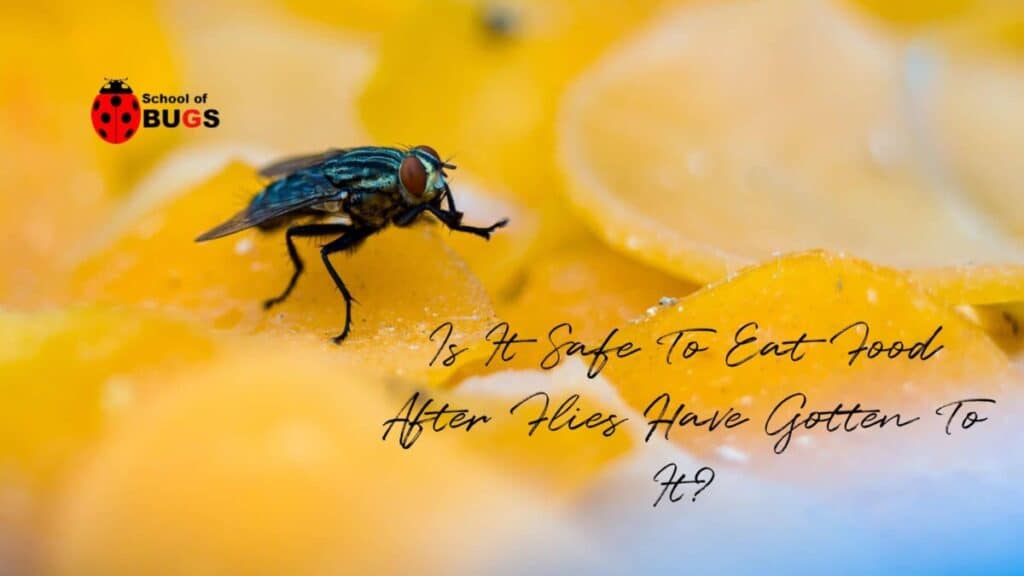
When it comes to late spring and summer, those of us who love the outdoors are presented with a conundrum.
Either accept that a variety of pests, such as flies, will congregate around us when outdoors, or stay inside. Nobody should have to avoid warm, summertime activities, so is it safe to eat food after flies have gotten to it?
Once flies have landed on a piece of human food, the food should be immediately discarded. A fly’s anatomy can transport a range of germs and pathogens to food.
Additionally, a fly will vomit on a piece of food to liquefy the portion they wish to eat, and this can cause the transmission of pathogens if consumed by a person.
In this guide, we will explore everything you need to know about flies contaminating your food. This is particularly useful if you enjoy outside barbecues or gatherings with large varieties of food and drink. Read on to find out more.
What Foods Do Flies Prefer?
There are many different species of flies, but the common housefly is by far the peskiest during summer. Houseflies like a wide variety of foods and liquids, with sugary liquids being the most preferred.
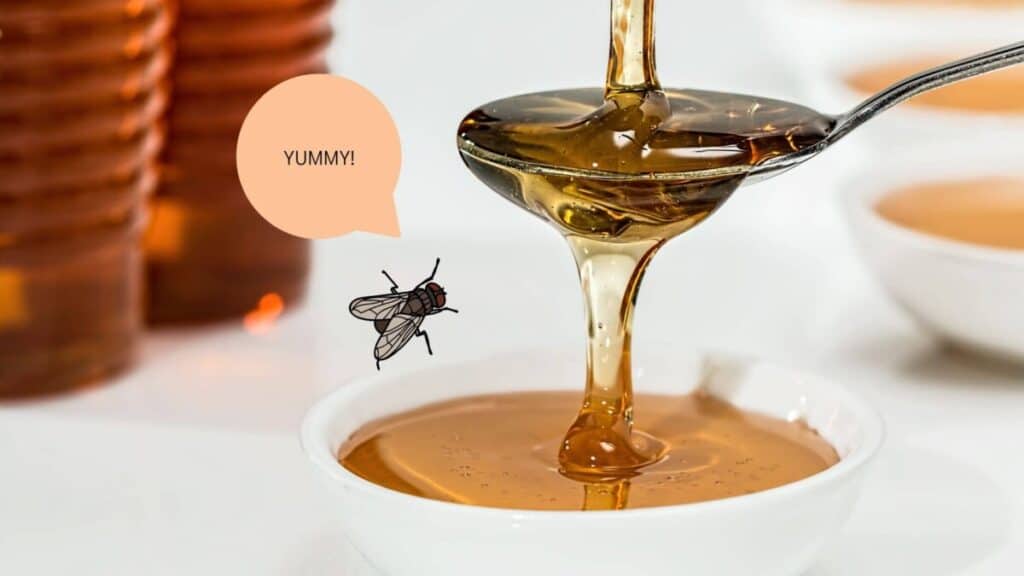
Organic matter that is ripe or actively decaying is preferable. This includes fruits and vegetables or rancid meat.
Animal feces are another favorite food of houseflies, so it is crucial to clean up after your dog every time they use the bathroom.
Fruit flies will eat these substances in addition to anything that is sweet or contains lots of sugar.
The prevalence of flies in your yard will typically come from any or all of these types of organic matter in your yard or near it.
This can include outdoor trash cans, as well, therefore, it is important to keep garbage receptacles as far away from your home as possible.
On days when you have outdoor gatherings that involve food and drink, try and always monitor food and liquid spills.
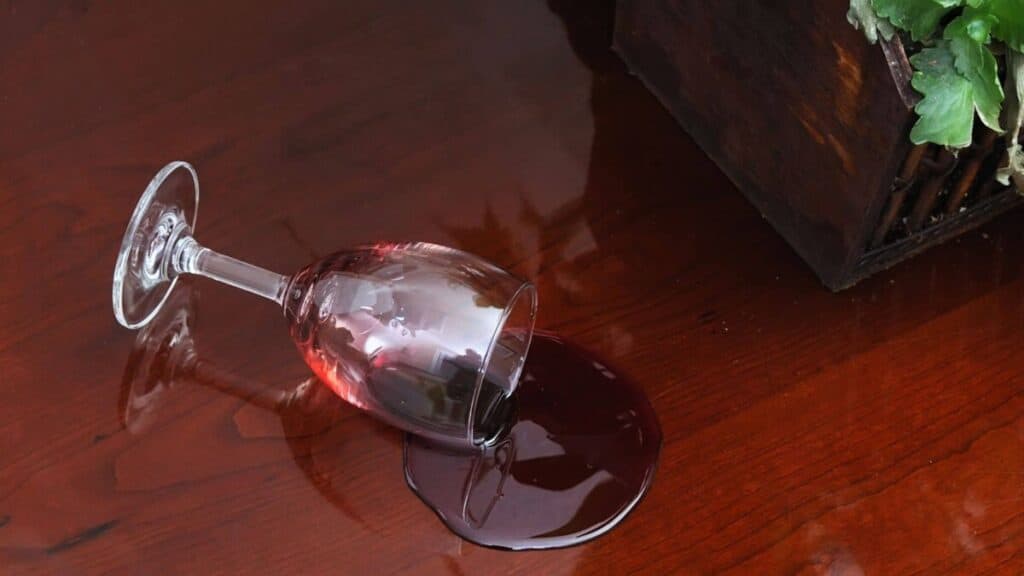
The smell may draw in the flies, but without actually food and drink to eat, the insects will disperse.
With these characteristics in mind, are there any immediate concerns as to whether flies contaminate food?
Can Flies Contaminate Food?
Apart from being creeped out, flies landing in food wouldn’t be an issue if it weren’t for germs.
Flies of any variety will spread germs to food; if the insects have been eating feces, some of the pathogens deposited on food can even be dangerous.
Dysentery and cholera are two of the most common, alarming pathogens spread by houseflies. These two pathogens are thought to be picked up when houseflies feast on animal feces.
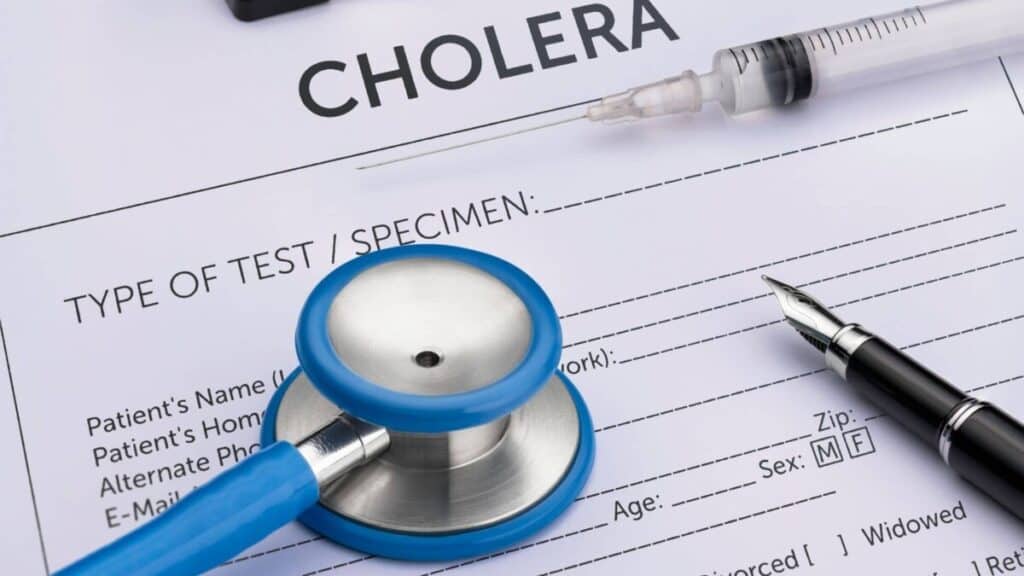
The pathogens are then spread to food either by the insect’s feet or wings, as well as when the flies vomit on the food they land on.
But even with all of these revolting facts in place, it is the threat of pesticides that poses the biggest risk. This is even more apparent for flies that are located in rural areas, where pesticides are used at a much higher volume.
Although pesticides are supposed to kill flies on contact, this is not always the case. For flies that do survive first contact with an aerosol pesticide, the insects can transmit the poison on their feet when they touch food or liquid that you ingest.
Even if the germs spread by flies on food are not as dangerous as others, there is still a risk you or your guests could get sick. Food-borne illnesses are another risk posed by houseflies.
If food is kept out long enough to spoil, in addition to being contaminated by flies, this is a recipe for disaster.
But what exactly do flies do when they land on food?
Do Flies Vomit On Food?
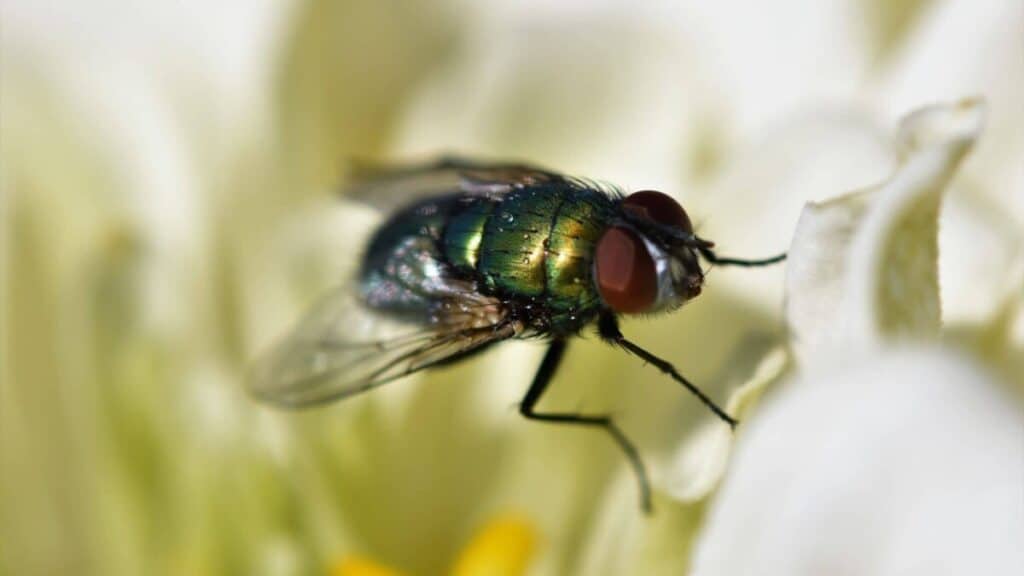
Flies are a type of insect that does not have mouth parts. A mouth is not exactly necessary for a fly since these insects do not need teeth to fight or kill prey.
Flies have a mouthpart that is designed for spewing liquid as well as for sucking liquid substances back up.
Flies are attracted to their preferred food sources by smell and vision. Once the insects locate a food source, they will land on it and inspect it with their feet.
If the food is acceptable, the insect will expel an enzyme-filled liquid that breaks down a small section of the food into a liquified mass. Flies will extract the liquified matter until satiated.
This is the same process that an adult fly will use throughout their lifetime to eat. What makes this such a revolting concept is that flies eat a wide variety of decaying matter, so this is one of the main reasons you must throw food away if a fly lands on it.
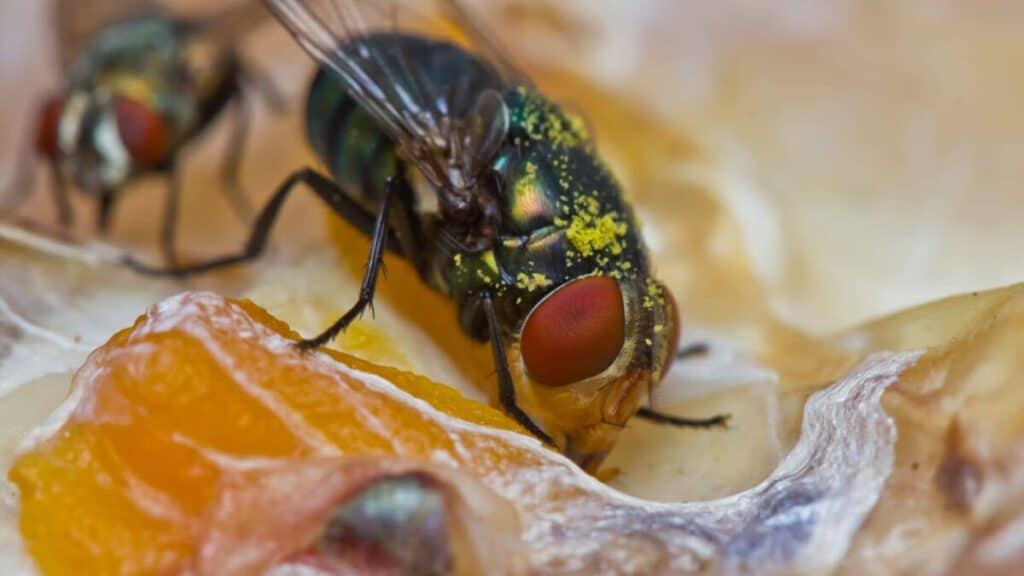
So what can you do to keep flies from landing on your food?
How To Keep Flies Off Food
The best preventive method is to try and keep the fly population around your house to a minimum. During spring and summer, this can be quite difficult since the insects are such a common part of these two seasons.
Houseflies, and to a certain extent fruit flies as well, will congregate and breed near areas that contain ample food sources.
You can expect to harbor a house fly infestation near garbage cans, around common areas where pets use the bathroom, or even indoors if there is exposed food either in a garbage disposal or a pantry.
Always make sure you keep garbage bins as far away from the house as possible. If this is not possible, consider using natural fly repellents on the lids of the cans to repel flies.
Try and train your dog to use the bathroom far away from the common areas of your yard. Always pick up and dispose of feces immediately.

You do not have to worry about pet urine, but feces should never be allowed to remain on the ground.
When you are cooking outdoors, always ensure that meat, poultry, or seafood is tightly wrapped until it goes onto an open flame.
If you are dining outdoors with large selections of food, always make sure each item is wrapped and stays wrapped. Better yet, try and keep food items in containers with a lid that closes.
The same rule applies indoors as well. Try and reduce the number of times you open and close your doors.
Just to be safe, keep all food wrapped or in closed containers since houseflies commonly fly indoors searching for food.
What To Do When a Fly Lands On Food?
As for what to do if a fly lands on a piece of food you are about to eat? Well, it really is up to you.
Most people would immediately throw the food out. This is quite wasteful, so it is worth keeping a few details in mind:
- How long was the fly on the food?
- Was the fly wiping the food across its feet?
- Was the fly completely still on the food?
If a fly quickly lands on and then flies off food, there is not much to worry about, especially if you are about to cook the item.
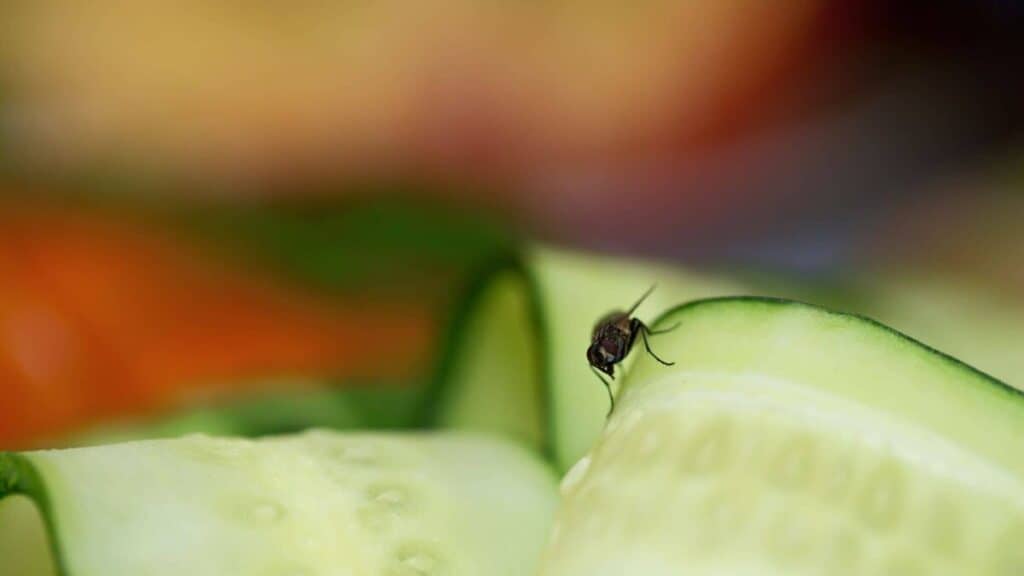
But if you observe a fly wiping its feet across food or standing completely still on food, I would discard this food item or section of a food item.
A fly will remain completely still when the insect is expelling liquid on the food and then sucking it back up. If the fly is wiping their feet across the food and sampling it, this is also spreading a great deal of germs.
Summary
In summary, houseflies and fruit flies are the two most common nuisance flies when it comes to your food.
Flies can spread potentially dangerous pathogens to the food you eat, so it is not always safe if a fly lands on your food.
If the fly lands quickly and flies away, the food is likely okay. But you are better off discarding food items that flies have landed upon.
Alright, that’s it for this article, here are a few hand-selected articles that you might also find interesting reads:
What Will Happen if a Human Swallowed a FlyFly in My Cooking Pot – Here’s What To Do Next…
Is It Safe to Eat Food When a Fly Has Landed on It?
Recent Posts
Tiny Black Bugs in Bathroom NO WINGS: What They Are and What to Do!
Finding tiny black bugs in your bathroom can be uncomfortable, to say the least. Especially if they are persistent, or they appear in very large numbers, which they often like to do. When it...
Tiny Black Bugs in Plant Soil - What Are They & What To Do About It
A short horror story: You get a new houseplant. You do your best to take care of it. You’ve ensured that it has the right soil, the right amount of sun, it gets enough water. And then one day, you...

